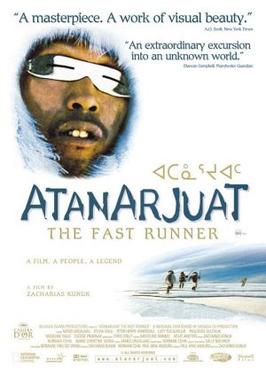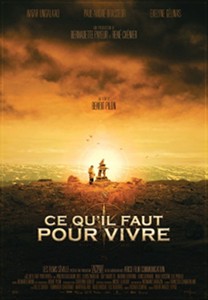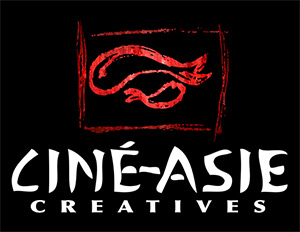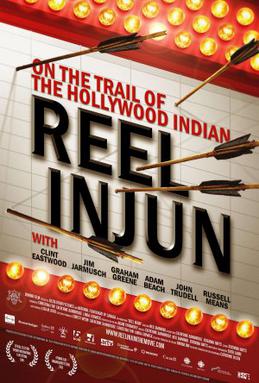
Atanarjuat: The Fast Runner is a 2001 Canadian epic film directed by Inuit filmmaker Zacharias Kunuk and produced by his company Isuma Igloolik Productions. It was the first feature film ever to be written, directed and acted entirely in the Inuktitut language.
Zacharias Kunuk is a Canadian Inuk producer and director most notable for his film Atanarjuat: The Fast Runner, the first Canadian dramatic feature film produced entirely in Inuktitut. He is the president and co-founder with Paul Qulitalik, Paul Apak Angilirq, and Norman Cohn, of Igloolik Isuma Productions, Canada's first independent Inuit production company. Atanarjuat: The Fast Runner (2001), the first feature film that was entirely in Inuktitut was named as the greatest Canadian film of all time by the 2015 Toronto International Film Festival poll.
The 68th New York Film Critics Circle Awards, honoring the best in film for 2002, were announced on 16 December 2002 and presented on 12 January 2003 by the New York Film Critics Circle.

Jeff Danna is a Canadian film composer. He has composed or co-composed scores for a wide range of films and television, including The Boondock Saints (1999), Resident Evil: Apocalypse (2004), Silent Hill (2006), The Imaginarium of Doctor Parnassus (2009), The Good Dinosaur (2015), Storks (2016), The Breadwinner (2017), The Addams Family (2019), Onward (2020), Guillermo Del Toro’s Tales of Arcadia (2019-2021), Nora Twomey’s My Father’s Dragon (2022) and Julia (2022).
An annual award for Best Achievement in Music - Original Score is presented by the Academy of Canadian Cinema and Television to the best Canadian original score for the previous year. Prior to 2012, the award was presented as part of the Genie Awards; since 2012 it has been presented as part of the expanded Canadian Screen Awards.

Isuma is an artist collective and Canada's first Inuit-owned (75%) production company, co-founded by Zacharias Kunuk, Paul Apak Angilirq and Norman Cohn in Igloolik, Nunavut in 1990. Known internationally for its award-winning film, Atanarjuat: The Fast Runner, the first feature film ever to be written, directed and acted entirely in the Inuktitut language, Isuma was selected to represent Canada at the 2019 Venice Biennale where they screened the film One Day in the Life of Noah Piugattuk, the first presentation of art by Inuit in the Canada Pavilion.
Norman Cohn is a U.S.-born Canadian film director, producer, cinematographer and editor best known for his work on films Atanarjuat: The Fast Runner and The Journals of Knud Rasmussen.

The Necessities of Life is a 2008 Canadian drama film directed by Benoît Pilon and starring Natar Ungalaaq, Éveline Gélinas and Paul-André Brasseur. Told in both French and Inuktitut, the film is about an Inuit man who is sent to Quebec for tuberculosis treatment.

Natar Ungalaaq is a Canadian Inuk actor, filmmaker and sculptor whose work is in many major collections of Inuit art. Before playing the lead roles in Atanarjuat: The Fast Runner (2001) and The Necessities of Life (2008), Ungalaaq played major roles in other Canadian and American films, including Kabloonak (1995), Glory & Honor (1998) and Frostfire (1994). He is also a producer and director of the Inuit Broadcasting Corporation.
The imagineNATIVE Film + Media Arts Festival is the world's largest Indigenous film and media arts festival, held annually in Toronto. The festival focuses on the film, video, radio, and new media work of Indigenous, Aboriginal and First Peoples from around the world. The festival includes screenings, parties, panel discussions, and cultural events.

Ciné-Asie Creatives was established in 2008 as a sister company of Ciné-Asie. The company is dedicated to sales and distribution of Asian films in Canada and Canadian films in Asia, as well as international co-production and location scouting in Quebec, Canada.

Reel Injun is a 2009 Canadian documentary film directed by Cree filmmaker Neil Diamond, Catherine Bainbridge, and Jeremiah Hayes that explores the portrayal of Native Americans in film. Reel Injun is illustrated with excerpts from classic and contemporary portrayals of Native people in Hollywood movies and interviews with filmmakers, actors and film historians, while director Diamond travels across the United States to visit iconic locations in motion picture as well as American Indian history.
Madeline Piujuq Ivalu is a Canadian Inuk filmmaker and actor from Igloolik, Nunavut. One of the cofounders of Arnait Video Productions, a women's video and filmmaking collective in Nunavut, she co-directed, co-wrote and starred in Arnait's first feature film production, Before Tomorrow . She costarred in the film with her real-life grandson, Paul-Dylan Ivalu. Her codirector of the film was Marie-Hélène Cousineau, and both women cowrote the film with Susan Avingaq.
Bernard Saladin d'Anglure is a Canadian anthropologist and ethnographer. His work has primarily concerned itself with the Inuit of Northern Canada, especially practices of shamanism and conceptions of gender. As an anthropological theorist, he studied under the structuralist Claude Lévi-Strauss, but has become most recognized for his innovative methodology and elaboration of the concept of the "third sex". He speaks French, English and Inuktitut fluently. He is currently Professor Emeritus (Retired) at the Université Laval.
Paul Apak Angilirq (1954–1998) was a Canadian film producer and screenwriter. A cofounder and vice-president of Isuma, Canada's first Inuit media production firm, he was producer and writer of the company's 2001 feature film Atanarjuat: The Fast Runner. Prior to co-founding Isuma with Norman Cohn and Zacharias Kunuk, he was an employee of the Inuit Broadcasting Corporation. During his career with Isuma, he made the short films The Qidlarsuaaq Expedition and Through Eskimo Country.
Marie-Hélène Cousineau is a Canadian film director and producer. Originally from Quebec, she moved to Igloolik, Northwest Territories in 1990, where she became a co-founder of the filmmaking collective Arnait Video Productions.
Atuat Akkitirq (1935–2022) was a Canadian filmmaker, actress and costume designer. A partner in the filmmaking collective Arnait Video Productions, she was a shortlisted Genie Award nominee for Best Costume Design at the 22nd Genie Awards in 2002 for Atanarjuat: The Fast Runner, and won the award at the 30th Genie Awards in 2010 for Before Tomorrow .

François Dompierre C.M. is a Canadian musician, songwriter and composer, best known as a composer of film scores.

Searchers is a 2016 Inuktitut-language Canadian drama film directed by Zacharias Kunuk and Natar Ungalaaq, which premiered at the Toronto International Film Festival. Based in part on the 1956 John Ford film The Searchers, the film is set in Northern Canada in 1913. It centres on Kuanana, a man who returns from hunting to discover that much of his family has been killed and his wife and daughter have been kidnapped.
Nunavut: Our Land is a Canadian docudrama series, which aired in 1994 and 1995. Created by Zacharias Kunuk and Norman Cohn through their Isuma studio to mark the 1993 passage of the Nunavut Act that authorized the creation of the territory of Nunavut, the 13-episode series featured short films of contemporary Inuit people recreating historical scenes of Inuit culture and society.








